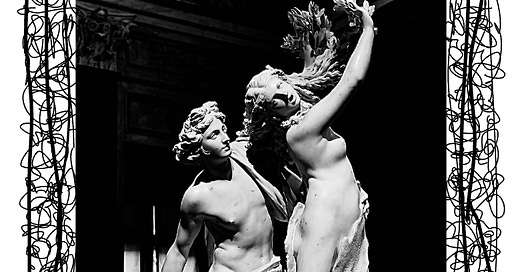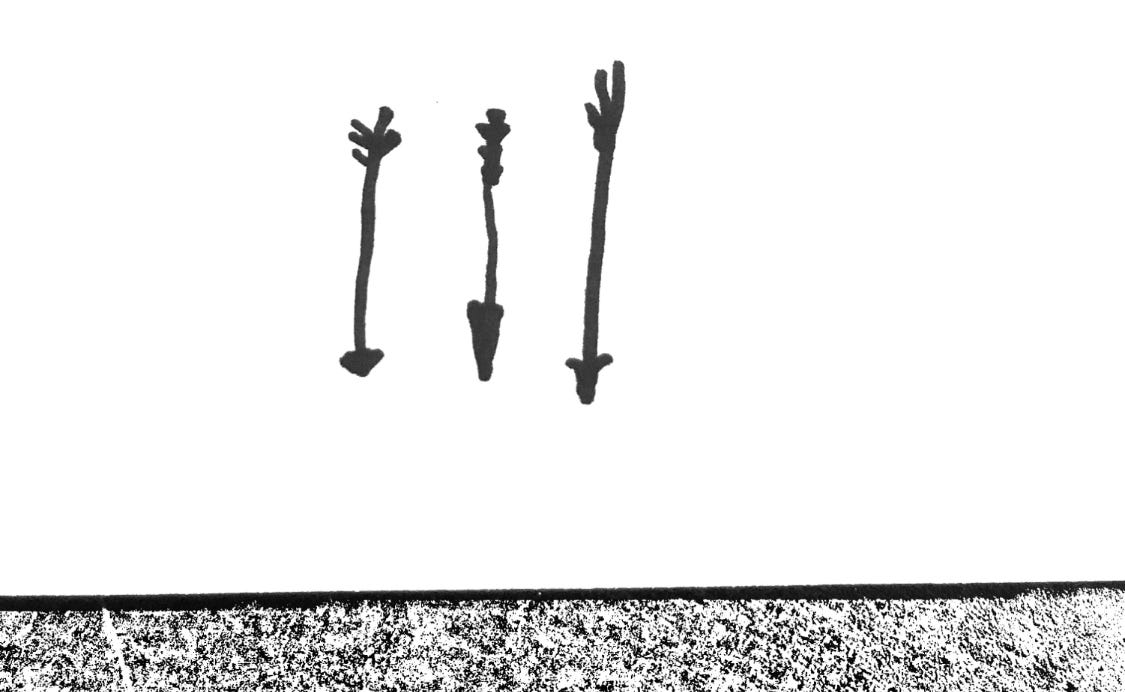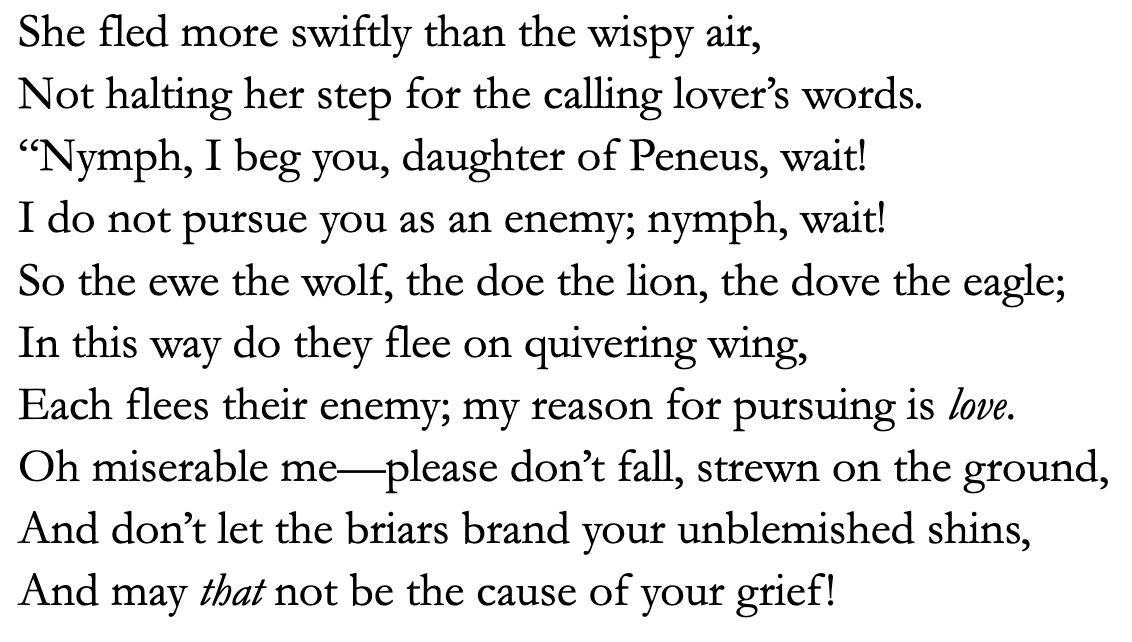I know for all you readers who aren’t present or former Classics majors, this Ovid business will seem amusing at best and tedious at worst. But I think it’s a good opportunity to illustrate why everyone needs Latin; or, why everyone needs their equivalent of what studying and translating Latin does for the mind. For me, it’s an appreciation of how form contributes to meaning, as well as the helpful remedy for self-rumination—where all the trouble begins—that arduous work supplies. I’ve said before that learning ancient languages brings you out of yourself. I think it’s the same with manual labor, or a task that vigorously engages your body. Instead of thinking of ourselves as fragile bundles of emotions just trundling through the world, I think we should try to remember we have bodies. Something the modern world would like us to forget! It’s good for us to do hard physical labor—for me, helping my dad to re-gravel the driveway. Harder than it sounds. The mind needs its own kind of workout. We feel so much better when concentrating on something that is difficult and rewarding, than when we allow niggling doubts to consume us.
This is something Ovid discovered in his own way, exiled as he was on the Black Sea, excommunicated from his (rather luscious and debauched) way of life in Rome. He found solace through work, as he explains in Tristia poem one. But before I get to the later work, something I’m really interested in, I’ve got to earn it. I have to read and understand The Metamorphoses—from which this excerpt of the story of Daphne and Apollo is taken, and the most famous of his pre-exile work. It’s rather young mannish, I’d say, playful and irreverent. It’s always considered and skilled, in perfect hexameter, but there’s some unworldliness about it too. He completed it the very same year Emperor Augustus forced him to leave on amped-up charges of conspiracy and promiscuity. He spent the rest of his life in what is now, ironically, Romania, as he could never again be a Roman. But he is always a poet.
I’ll give you here Dryden’s version of this passage, just to show you what is possible, and how I am just a translator in training. I did groan when I read it—plain green envy! Oy vey. But it is Dryden, so I don’t feel too bad.












